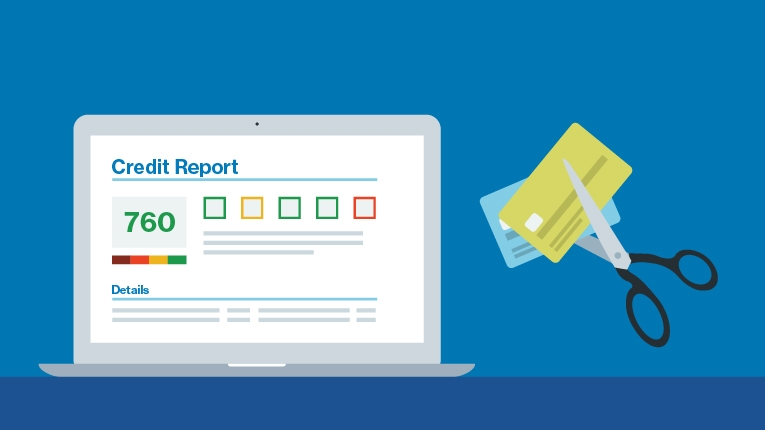What are "quick loans" & how do they work?

Please note that the "quick loans" product discussed in this article is not a product or service offered by LendingClub. This product is typically offered by non-bank financial institutions and may not be subject to the same regulatory requirements as the products LendingClub offers.
When you’re in a pinch and looking for a quick loan, you may come face-to-face with a variety of lenders offering payday, auto title, and high-interest-rate installment loans hidden under a different name. Though their lax requirements and fast funding may be tempting, there are often better, more affordable options available that match your borrowing needs.
What Is a quick loan?
A quick loan is a loan that offers approval and funding within minutes to hours of application, sometimes as fast as the same day. Though they can come in all types of loans—like personal, auto, secured, and unsecured, to name a few—when you search for quick loans online, the results may make you think that it’s a specific type, when in reality the term “quick” is simply describing how fast the loan can get approved and deposited into your account.
Because of this, it’s important to be wary, as lenders advertising quick loans, fast loans, or fast cash often offer loans with high interest rates, no credit checks, or intentionally easy eligibility requirements. In other words, quick loans can provide immediate gratification but can harm your financial situation. That’s not to say getting a loan quickly isn’t possible. With a bit of research, you can weed out any advanced fee loan scams from legitimate lenders and find a loan that suits your financial needs.
Quick loan vs personal loans: What’s the difference?
Quick loans are designed for fast access to funds, often with higher interest rates and shorter repayment terms. Personal loans typically offer lower interest rates and longer repayment periods but may take more time for approval and disbursement.
Quick loans:
Refers to how fast the loan is approved and deposited into your account.
Not a specific type of loan.
Can be easier to qualify for, but it doesn’t necessarily mean you’ll get the funds faster.
May have higher interest rates and a shorter repayment period
Personal loans:
Often swift and easy to get once you fit the personal loan eligibility criteria
Tend to be the better option for overall costs
Can offer lower interest rates and longer repayment periods
Depending on the application process, funds could hit your bank account as fast as a ‘quick loan’
Why are quick loans necessary?
People usually search for quick loans because they need money for an immediate emergency and don’t realize better alternatives exist. Some loans advertised as “quick loans” generally have high fees and interest rates, short repayment terms, and high annual percentage rates (APRs). They’re often a last resort, but there are more cost-effective solutions if you know where to look. Some common reasons you might search for quick loans include:
Emergency medical expenses. Accidents happen without warning, and you may need money to pay for medical bills for yourself or a loved one. (Note: they may not advertise it and might send you a bill, but nonprofit healthcare providers, including hospitals and clinics, may offer free or discounted services to low-income patients).
Household bills. Sometimes bills stack up, and you need extra money to stock the fridge and cover rent, utilities, phone, insurance, or other necessities.
Car repairs. A broken-down car can be a time-sensitive emergency, particularly if you need your car to get to work.
Home repairs. Some household problems, like a leaky roof, can lead to more costly repairs or dangerous living conditions and may need to be fixed immediately.
These reasons are common and understandable. Rather than searching for quick loans, a personal loan from a reputable lender could save you money (and be a safer bet) in the long run.
The pros and cons of using advertised “quick loans”
When you rationalize it, loans advertised as “quick loans” can be expensive, but they’re better than forgoing medical treatment, missing a rent payment, being stuck with broken down car, or housed in an unlivable home, all of which can cascade into larger debt problems. Still there may be better, more affordable alternatives. Here are some pros and cons of advertised “quick loans.” and how to look for more affordable alternatives.
Pros
You may be able to get cash the same day
Low (or no) credit requirements means the loans might be easier to qualify for
Cons
High interest rates and fees can turn quick loans into a huge financial burden
Extremely short loan terms and repayment options can make it difficult to make loan payments on time while affording your usual monthly expenses
Many lenders advertising quick loans come with hidden fees and expenses
Remember: Because quick loans refer to timing and aren’t a specific type, it is possible to still get funds fast from a reputable lender. Instead of searching for quick loans online, change your search terms to look for Personal Loans with easy applications or short approval and fund transfer times.
4 ways to help you get a loan fast
You can take a few steps that may increase your chances of quick approval for a loan with reasonable terms. Some of this can require forethought and planning, and it’s often best to take action before you need to borrow money.
1. Don’t apply for more than you need.
The larger the loan amount, the more difficult it is to qualify, so review your finances and apply only for what you truly need. The loan amount can also impact which types of loans you should look into. For example, payday loans are often capped at $500, which might make a credit card, wage access program, or a loan from an employer, family member, or friend better alternatives. Larger expenses might mean looking into personal loans, high-rate installment loans, or auto title loans. In general, the less expensive option tends to be low-rate personal loans.
2. Improve your credit.
Your credit score can directly impact your ability to qualify for a loan and the rates and terms you’re offered if approved. Improving your credit takes time. It’s worth focusing on your credit now to help ensure you can qualify for more favorable loan terms if you do need one in the future. If you haven’t done so recently, review your credit reports from the three credit bureaus, Equifax, Experian, and TransUnion. If you find any errors, dispute them immediately. Your credit score may quickly improve when negative marks are updated or deleted.
3. Go to a reputable lender.
Before applying, read customers’ reviews of online lenders to learn about their experiences. Remember: though speed is important, it shouldn’t be your only concern. You also want to find a lender that offers good customer service, reasonable rates, and fair repayment options. Keep in mind that some lending options can carry high interest rates. Payday loans, for example, can carry up to 400% APR, according to the Consumer Financial Protection Bureau.
4. Have your documents ready.
Lenders may request documents to verify your identity, income, and physical address. You may need to share copies of:
A government-issued ID, like a driver’s license or passport
Proof of physical address, like a lease or utility bill
Proof of income, like a recent pay stub, bank statement, or tax documents
Sharing copies as soon as they’re requested could help you avoid delays during the loan application process.
The 5 best places to find a quick loan online
Reputable lenders won’t necessarily advertise their borrowing options as “quick loans” given the negative connotation, but some still offer fast loans or funding with more reasonable terms. Here are five options to consider.
1. Consider payday alternative loans
Some credit unions offer payday alternative loans (PALs). As the name implies, PALs are intended to be better alternatives to traditional payday loans, though they may still charge relatively high interest rates. Some credit unions offer two types of PALs: one—called PAL I—can be for up to $1,000 and only available to members who have been a part of the credit union for at least a month; and the other—called PAL II—can be for up to $2,000 and doesn’t require borrowers to be an existing member, which could make it a good option if you need a small, loan quickly.
2. Look into wage access programs
Wage access programs are an increasingly popular way to access the money you’ve earned before payday arrives. Some programs, like Earnin and Branch, allow you to sign up and request part of your pay early. For example, if you’ve worked an entire week but your payday isn’t until the following Friday, you could request some of the money you already earned this week. Because you aren’t taking out a loan, you won’t be charged interest, but there may be a fee for expedited payments.
Most services require your employer to sign up first or are offered as an optional feature through payroll providers. Ask your employer if it uses a wage access program. Alternatively, ask if they have an employee emergency loan program.
3. Your current financial institution
Many banks and credit unions don’t offer personal loans, but you can look online or call to see if they offer fast loans or financing. If so, you may be able to get the money quickly deposited into your account and won’t have to wait for an electronic transfer.
4. Reach out to family and friends
Friends and family members may be able to quickly send you money using an online service, such as PayPal, Venmo, or Zelle. Make sure you’ll be able to repay the loan in a reasonable time or make it clear that you’re requesting a gift. In either case, repeatedly turning to friends or family members could strain relationships.
5. Personal loans from LendingClub Bank
LendingClub’s entire process is online, from application and review to loan approval and funding.
It starts by checking your rate, which allows you to see your loan offers without impacting your credit score. You can also apply with a creditworthy co-borrower, which can increase your chances of getting approved with a more favorable rate and higher loan amount. Once you select the loan that works best, you complete the online application and confirm your information.
Once your information is verified and your loan is approved, LendingClub sends the funds directly to your bank account. Often, borrowers receive the money within as little as a few days.
Why you should consider a personal loan over a loan advertised as a "quick loan"
Personal loans that don’t make speed their only selling point are often a better option than those advertised as “quick loans.” Generally, these personal loans offer a lower interest rate, high loan limit, and longer repayment terms, which can make managing the repayments easier. And this doesn’t mean they’ll take weeks and months to process. LendingClub, for example, offers funds in as little as a few days.1
Online personal loans may also require a better credit profile than advertised quick loans — which might be scary to people with less-than-ideal credit. However, online lenders often let you pre-check your offer, which won’t impact your credit score. Within a few minutes, you can find out your chances of being approved and review your options.
What makes LendingClub stand out?
With over 4 million members served since 2007, LendingClub is the nation’s largest online lending marketplace and offers access to credit with flexible amounts and terms, fast funding times, low interest rates, and no pre-payment penalties. We treat our members the way we’d want to be treated with clear terms, fixed rates, and repayment plans that our members can actually afford. This, especially when needing a quick loan to pull you out of financial hot water, can make all the difference.




